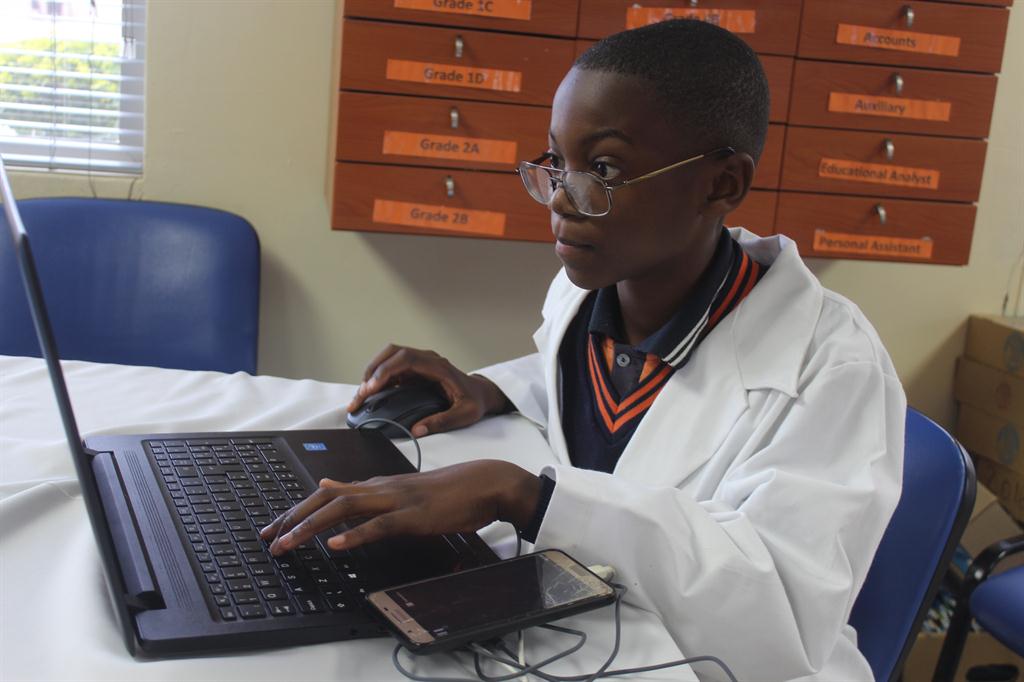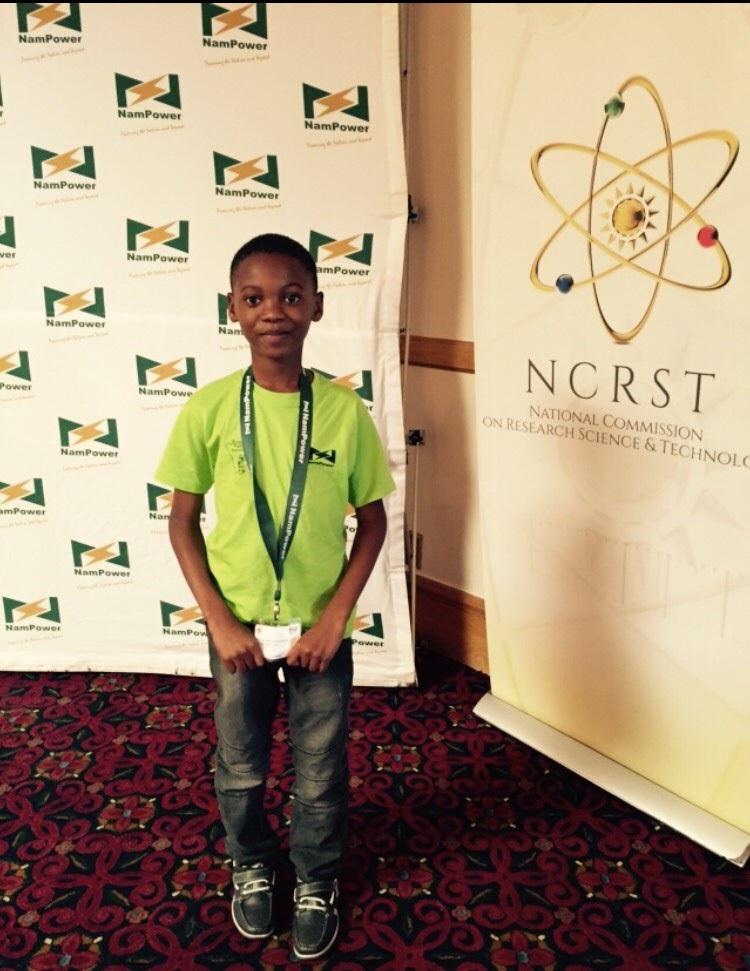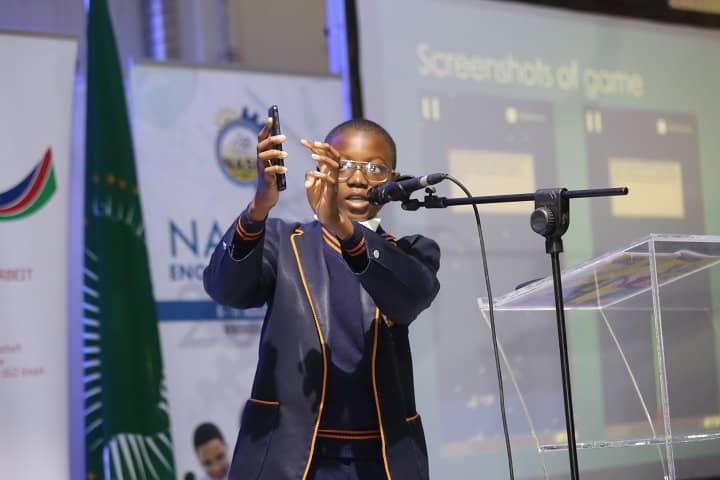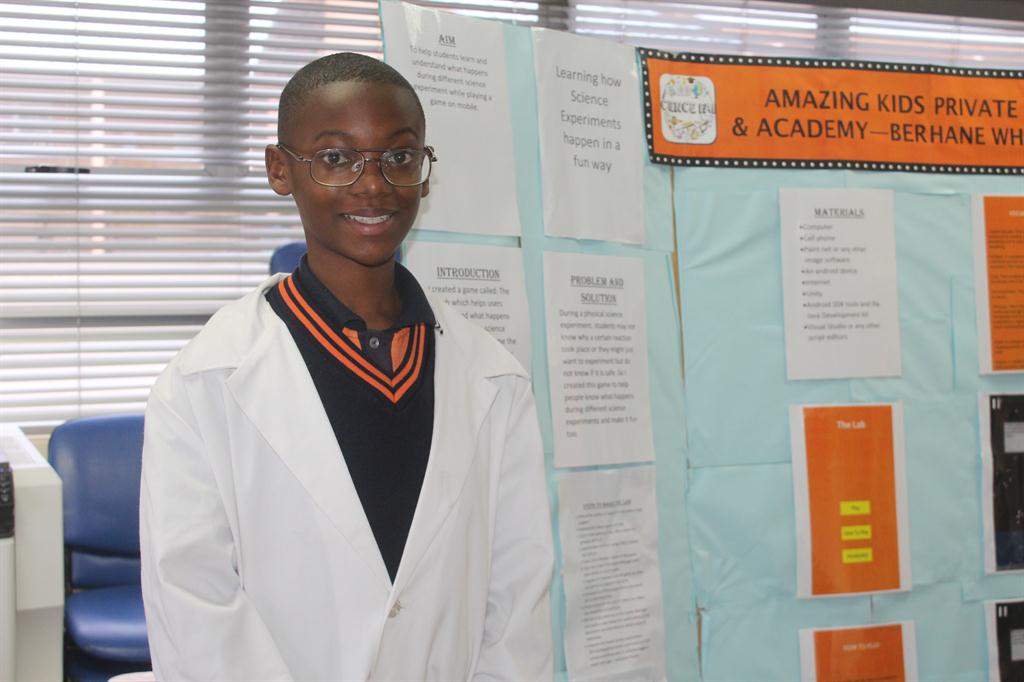A passion for gaming
A grade 8 pupil has created a game to help people know what happens during science experiments, in a fun way.
Justicia ShipenaBerhane Wheeler, a grade 8 learner at Amazing Kids Private School and Academy, has developed a science study game.
Speaking to The Zone, Wheeler said he created the game to help users understand what happens during various science experiments.
He further explained that in the game the user selects the object they want by pressing on it, and once the user selects, they will be able to tap anywhere on the screen to spawn the object.
Wheeler said his game is aimed at helping students learn, while playing a game on a mobile phone.
“During a physical science experiment, students may not know why a certain reaction took place or they might want to experiment but don't know if it's safe. So I created this game to help people know what happens during science experiments, in a fun way,” he said.
The challenges he faced while designing 'The Lab' was that he had to learn how 2D physics and collision detection works, as he only had 3D game development knowledge.
He said coming up with a name for the game was not easy. Another challenge he faced was figuring out how to make the game fit all Android screen resolutions.
His game is available on Android devices only, but he plans on making it available for iOS devices as well.
The Lab also has a vocabulary session that helps learners understand words they are not familiar with.
Wheeler recommends that his peers play the game, as some scientific reactions take longer, but in the game the reactions take place faster, which is less time consuming. He also said learners can try out the experiments without having to consider safety precautions.
“When doing experiments in a school lab there are so much safety precautions required, like being under the supervision of a teacher, and in the game one can experiment in their own comfort zone, without worrying about explosions and so on,” he said.
Last year wheeler took part in the Game Design Challenge, as he has a keen interest in designing and coding.
He previously also designed a video game called 'The Heroes of Namibia', which focuses on helping children learn about Namibian historical figures.
He started developing digital games after his mother introduced him to Scratch, a programming language; following which Nust lecturers introduced him to virtual and augmented reality games.
He also took part in a remarkable workshop titled 'Build a guessing game in Python', which he formulated and ran with great impact.
When he was in primary school, Wheeler was also responsible for creating his own computer game that he showcased at the school science fair. The game, which he calls' The Super Quest', is an educational one incorporating subjects such as mathematics and social studies.
“I spend more time making games than I do enjoying them, and I actually enjoy that more. I decided on making an educational game so that it will help children do well in their studies and have fun at the same time,” he said.
Diddy Sabuta, Wheeler's classmate, said he finds the game creative and inspiring.
“I have played one of his games regarding history and it tells us more about what happened in the past. Compared to a history book, it gives us more information than what you have learned in the book and it is also a fun way to study history,” Sabuta said.
Brandell Hoeb, a grade 8 learner at Amazing Kids Private School, said the game helps one learn and understand physics better. He also urged his peers to play it, adding that it is a great game.











Comments
My Zone
No comments have been left on this article